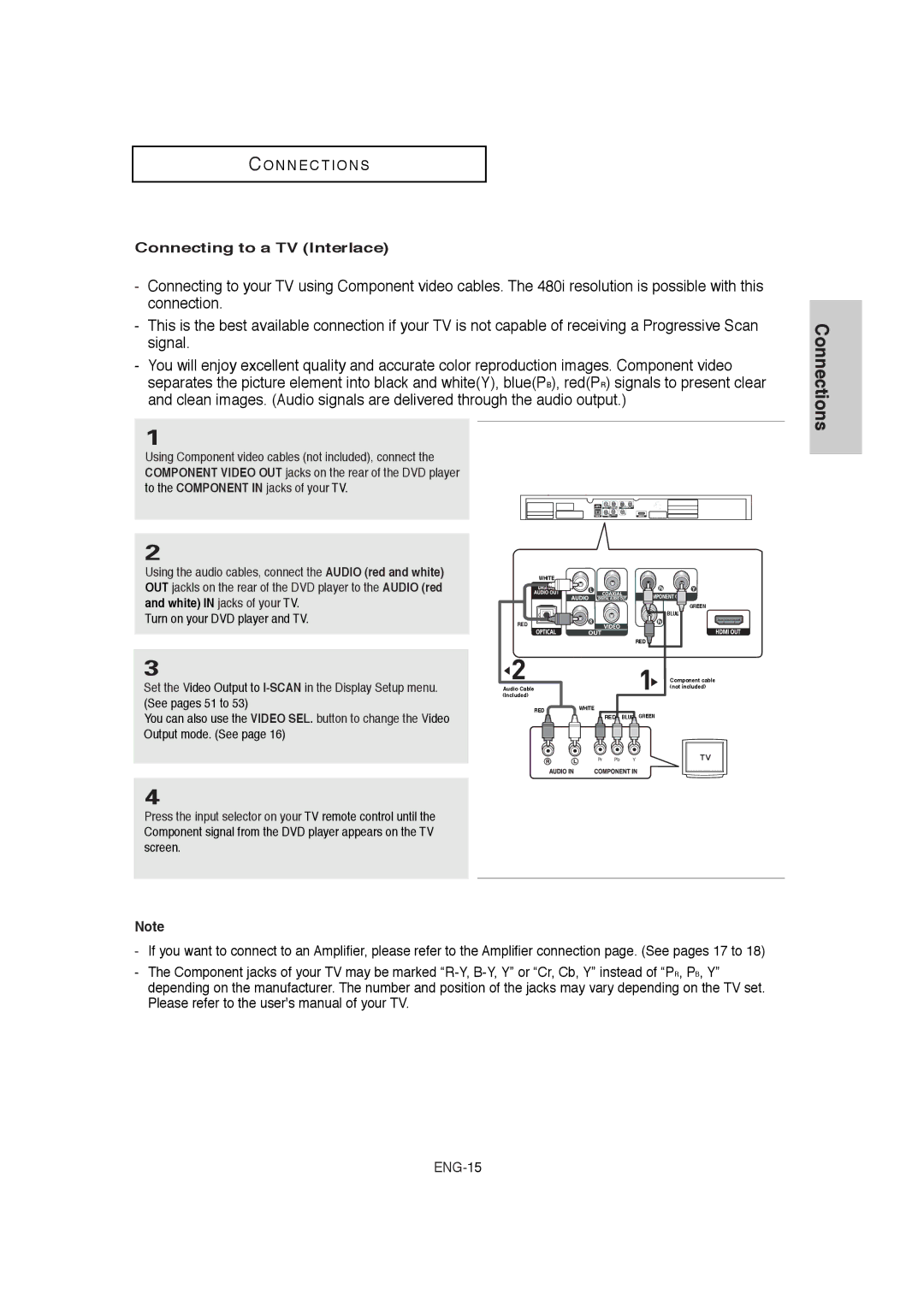
C O N N E C T I O N S
Connecting to a TV (Interlace)
-Connecting to your TV using Component video cables. The 480i resolution is possible with this connection.
-This is the best available connection if your TV is not capable of receiving a Progressive Scan signal.
-You will enjoy excellent quality and accurate color reproduction images. Component video separates the picture element into black and white(Y), blue(PB), red(PR) signals to present clear and clean images. (Audio signals are delivered through the audio output.)
Connections
1
Using Component video cables (not included), connect the COMPONENT VIDEO OUT jacks on the rear of the DVD player to the COMPONENT IN jacks of your TV.
2
Using the audio cables, connect the AUDIO (red and white) OUT jackls on the rear of the DVD player to the AUDIO (red and white) IN jacks of your TV.
Turn on your DVD player and TV.
WHITE
RED
GREEN
BLUE
RED
3
Set the Video Output to | Audio Cable |
|
|
|
|
|
|
|
|
|
|
|
|
| Component cable | ||
|
|
|
|
|
|
|
|
|
|
|
|
| (not included) | ||||
(See pages 51 to 53) | (Included) |
|
|
|
|
|
|
|
|
|
|
|
|
|
| ||
RED |
|
|
| WHITE | |||||||||||||
You can also use the VIDEO SEL. button to change the Video |
|
|
|
|
|
|
|
|
| RED BLUE | GREEN | ||||||
Output mode. (See page 16) |
|
|
|
|
|
|
|
|
|
|
|
|
|
|
|
|
|
|
|
|
|
|
|
|
|
|
|
|
|
|
|
|
|
| |
4
Press the input selector on your TV remote control until the Component signal from the DVD player appears on the TV screen.
Note
-If you want to connect to an Amplifier, please refer to the Amplifier connection page. (See pages 17 to 18)
-The Component jacks of your TV may be marked
